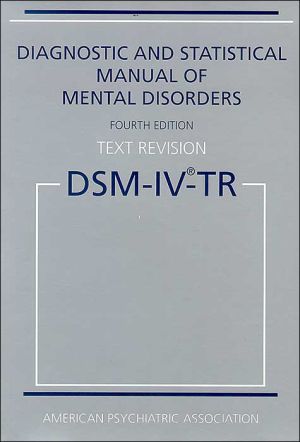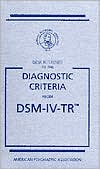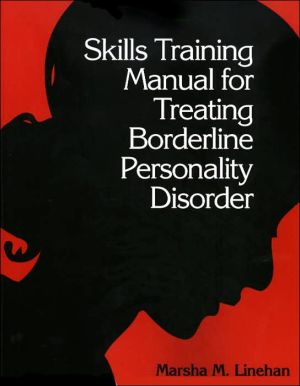Ambiguous Loss: Learning to Live with Unresolved Grief
When a loved one dies we mourn our loss. We take comfort in the rituals that mark the passing, and we turn to those around us for support. But what happens when there is no closure, when a family member or a friend who may be still alive is lost to us nonetheless? How, for example, does the mother whose soldier son is missing in action, or the family of an Alzheimer's patient who is suffering from severe dementia, deal with the uncertainty surrounding this kind of loss?\ In this sensitive and...
Search in google:
When a loved one dies we mourn our loss. We take comfort in the rituals that mark the passing, and we turn to those around us for support. But what happens when there is no closure, when a family member or a friend who may be still alive is lost to us nonetheless? How, for example, does the mother whose soldier son is missing in action, or the family of an Alzheimer's patient who is suffering from severe dementia, deal with the uncertainty surrounding this kind of loss?In this sensitive and lucid account, Pauline Boss explains that, all too often, those confronted with such ambiguous loss fluctuate between hope and hopelessness. Suffered too long, these emotions can deaden feeling and make it impossible for people to move on with their lives. Yet the central message of this book is that they can move on. Drawing on her research and clinical experience, Boss suggests strategies that can cushion the pain and help families come to terms with their grief. Her work features the heartening narratives of those who cope with ambiguous loss and manage to leave their sadness behind, including those who have lost family members to divorce, immigration, adoption, chronic mental illness, and brain injury. With its message of hope, this eloquent book offers guidance and understanding to those struggling to regain their lives. Asian Age Dr. Boss describes [the] all-too-common phenomenon [of unresolved grief] as resulting from either of two circumstances: when the lost person is still physically present but emotionally absent or when the lost person is physically absent but still emotionally present. In addition to senility, physical presence but psychological absence may result, for example, when a person is suffering from a serious mental disorder like schizophrenia or depression or debilitating neurological damage from an accident or severe stroke, when a person abuses drugs or alcohol, when a child is autistic or when a spouse is a workaholic who is not really 'there' even when he or she is at home...Cases of physical absence with continuing psychological presence typically occur when a soldier is missing in action, when a child disappears and is not found, when a former lover or spouse is still very much missed, when a child 'loses' a parent to divorce or when people are separated from their loved ones by immigration...Professionals familiar with Dr. Boss's work emphasised that people suffering from ambiguous loss were not mentally ill, but were just stuck and needed help getting past the barrier or unresolved grief so that they could get on with their lives.
1Frozen Grief12Leaving without Goodbye263Goodbye without Leaving454Mixed Emotions615Ups and Downs776The Family Gamble937The Turning Point1068Making Sense out of Ambiguity1189The Benefit of a Doubt133Notes143Acknowledgments153
\ Washington PostYou will find yourself thinking about the issues discussed in this book long after you put it down and perhaps wishing you had extra copies for friends and family members who might benefit from knowing that their sorrows are not unique...This book's value lies in its giving a name to a force many of us will confront—sadly, more than once—and providing personal stories based on 20 years of interviews and research.\ — Pamela Gerhardt\ \ \ \ \ \ ChoiceEngagingly written and richly rewarding, this title presents what Boss has learned from many years of treating individuals and families suffering from uncertain or incomplete loss...The obvious depth of the author's understanding of sufferers of ambiguous loss and the facility with which she communicates that understanding make this a book to be recommended.\ — R. R. Cornellius\ \ \ \ Family ForumWritten for a wide readership, the concepts of ambiguous loss take immediate form through the many provocative examples and stories Boss includes, All readers will find stories with which they will relate...Sensitive, grounded and practical, this book should, in my estimation, be required reading for family practitioners.\ — Ted Bowman\ \ \ \ \ \ Asian AgeDr. Boss describes [the] all-too-common phenomenon [of unresolved grief] as resulting from either of two circumstances: when the lost person is still physically present but emotionally absent or when the lost person is physically absent but still emotionally present. In addition to senility, physical presence but psychological absence may result, for example, when a person is suffering from a serious mental disorder like schizophrenia or depression or debilitating neurological damage from an accident or severe stroke, when a person abuses drugs or alcohol, when a child is autistic or when a spouse is a workaholic who is not really 'there' even when he or she is at home...Cases of physical absence with continuing psychological presence typically occur when a soldier is missing in action, when a child disappears and is not found, when a former lover or spouse is still very much missed, when a child 'loses' a parent to divorce or when people are separated from their loved ones by immigration...Professionals familiar with Dr. Boss's work emphasised that people suffering from ambiguous loss were not mentally ill, but were just stuck and needed help getting past the barrier or unresolved grief so that they could get on with their lives.\ \ \ \ \ \ Washington PostYou will find yourself thinking about the issues discussed in this book long after you put it down and perhaps wishing you had extra copies for friends and family members who might benefit from knowing that their sorrows are not unique...This book's value lies in its giving a name to a force many of us will confront--sadly, more than once--and providing personal stories based on 20 years of interviews and research.\ — Pamela Gerhardt\ \ \ \ \ ChoiceEngagingly written and richly rewarding, this title presents what Boss has learned from many years of treating individuals and families suffering from uncertain or incomplete loss...The obvious depth of the author's understanding of sufferers of ambiguous loss and the facility with which she communicates that understanding make this a book to be recommended.\ — R. R. Cornellius\ \ \ \ \ Family ForumWritten for a wide readership, the concepts of ambiguous loss take immediate form through the many provocative examples and stories Boss includes, All readers will find stories with which they will relate...Sensitive, grounded and practical, this book should, in my estimation, be required reading for family practitioners.\ — Ted Bowman\ \ \ \ \ Asian AgeDr. Boss describes [the] all-too-common phenomenon [of unresolved grief] as resulting from either of two circumstances: when the lost person is still physically present but emotionally absent or when the lost person is physically absent but still emotionally present. In addition to senility, physical presence but psychological absence may result, for example, when a person is suffering from a serious mental disorder like schizophrenia or depression or debilitating neurological damage from an accident or severe stroke, when a person abuses drugs or alcohol, when a child is autistic or when a spouse is a workaholic who is not really 'there' even when he or she is at home...Cases of physical absence with continuing psychological presence typically occur when a soldier is missing in action, when a child disappears and is not found, when a former lover or spouse is still very much missed, when a child 'loses' a parent to divorce or when people are separated from their loved ones by immigration...Professionals familiar with Dr. Boss's work emphasised that people suffering from ambiguous loss were not mentally ill, but were just stuck and needed help getting past the barrier or unresolved grief so that they could get on with their lives.\ \ \ \ \ Library JournalBoss, a practicing psychotherapist and professor of family social science at the University of Minnesota, defines and explores ambiguous loss, a common and painful condition. Typified by a sense of "frozen grief," it can occur when a loved one is taken away through desertion, divorce, or abduction or can no longer respond owing to mental or emotional loss or injury. Boss has written a thorough and compassionate study that serves as a guide to those trying to cope and get on with their lives. Case studies and anecdotes inspire and reassure, and Boss encourages self-nurturance and strength. Recovery can pave the way to a more positive and successful life. This book is beautifully written in clear, nontechnical language. Recommended for both public and academic libraries.--Yan Toma & Jessica Wolff, Queens Borough P.L., Flushing, NY Copyright 1999 Cahners Business Information.\ \ \ \ \ BooknewsDeals with emotions surrounding ambiguous losses, such as the gradual loss of a family member to Alzheimer's disease, or the unresolved loss of a family whose son is reported missing in action. Suggests strategies that can cushion the pain and help families come to terms with their grief. Case stories offer heartening narratives of people who learn to cope with ambiguous loss, including those who have lost due to divorce, immigration, adoption, chronic mental illness, and brain injury. Lacks a subject index. The author is a professor of family social science at the University of Minnesota, and a psychotherapist in private practice. Annotation c. Book News, Inc., Portland, OR (booknews.com)\ \ \ \ \ Kirkus ReviewsA compassionate exploration of the effects of ambiguous loss and how those experiencing it handle this most devastating of losses. Family therapist and researcher Boss (Univ. of Minnesota) has studied ambiguous loss in the families of pilots declared missing in action in Vietnam and Cambodia, in midlife couples whose adolescent children have recently left home, and in families where one member has Alzheimer's. This latter group includes Native American women of the Ashinabe tribe in northern Minnesota. The author divides ambiguous loss into two basic types: first, where someone is perceived as physically absent but psychologically present, e.g., men declared missing in action who are not known to be alive or dead; second, where someone is perceived to be psychologically absent but physically present, e.g., a spouse with dementia or other mental illness. Situations that can create a feeling of ambiguous loss also include such common phenomena as immigration or a move, adoption, divorce, and the workaholism of a partner. Boss finds that the uncertainty of such situations can easily lead to depression, anxiety, and family conflict. Using personal narratives of those she has worked with, she reports how those experiencing ambiguous loss often struggle to control an unclear situation by searching for absolutes, either denying that anything has changed or, alternatively, acting as though the loved one is completely gone. Among the Ashinabe women, however, she found a spiritual acceptance of ambiguity, indicating that a tolerance for ambiguity and uncertainty seems to be related to cultural values and spiritual beliefs. As a family therapist, Boss's own approach is to encourage families totalk together, to reach a consensus about how to mourn that which has been lost and how to celebrate that which remains. Her simple stories of families doing just that contain lessons for all. Insightful, practical, and refreshingly free of psychobabble.\ \








